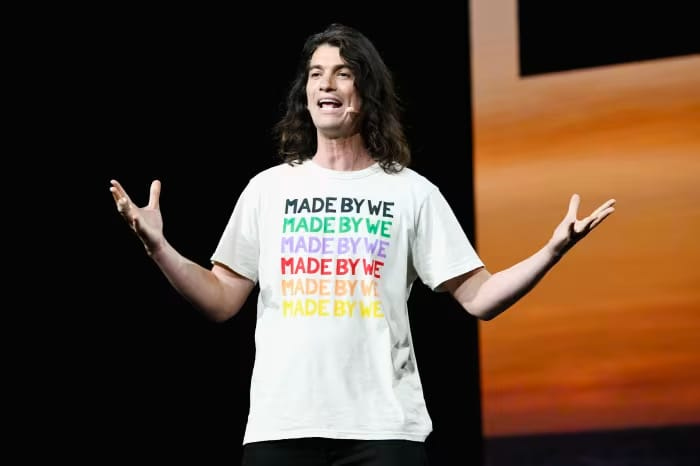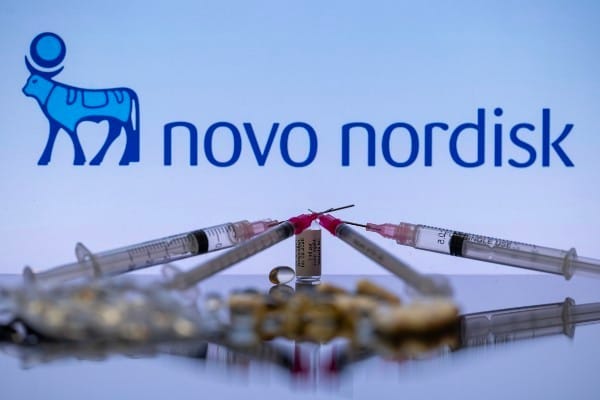Today’s Action
Will China Support its Market?

Stocks and bonds saw mixed performance as investors awaited updates on interest rate directions from Federal Reserve officials and assessed the effectiveness of China's measures to support its market. The Stoxx 600 index in Europe experienced a slight rise, while futures in the US equity market showed minimal changes. Ahead of a scheduled $42 billion auction of 10-year US Treasury bonds on Wednesday, US government bonds remained steady. An index tracking Asian stocks hit its highest level in over a month.
After a brief decline due to positive economic indicators, Treasury bonds stabilized, and expectations for rapid Federal Reserve rate cuts were adjusted. Fed officials maintained a careful stance on Tuesday, suggesting that although rate cuts could happen later this year, more progress on controlling inflation is necessary.
Attention is also on the significant share price drop and credit rating downgrade to junk status of New York Community Bancorp by Moody’s Investors Service. Treasury Secretary Janet Yellen assured that regulators are taking steps to ensure the financial system's resilience against losses in the commercial real estate sector.
In Asia, stocks in Hong Kong fell, while mainland stocks fluctuated before closing higher, reflecting uncertainty about the impact of Beijing's stabilizing efforts. With Chinese markets closing for the weeklong Lunar New Year holiday starting Friday, volatility is expected to remain high.
Elsewhere, oil prices fluctuated within a tight range following two days of increases, with geopolitical tensions in the Middle East being counterbalanced by a report indicating growing US stockpiles.
The Random Take
What a Plot Twist

Adam Neumann, the original founder of WeWork, is making moves to repurchase the now-bankrupt provider of co-working spaces. His legal team conveyed to WeWork's consultants on Monday that Neumann's latest venture, Flow Global, has secured financial backing from Dan Loeb's investment firm, Third Point, for this acquisition. This development was first highlighted by The New York Times’ DealBook.
In December, Neumann reached out to WeWork seeking the necessary data to formulate a proposal for either acquiring the firm or its assets. He also proposed providing a loan to support the company during its bankruptcy. However, Neumann's request for access to this information has yet to be granted. WeWork has not issued any statements regarding Neumann's offer.
The company declared bankruptcy in November, marking a significant downfall from its previous valuation at $47 billion. During a court session on Monday, WeWork's legal representatives expressed the company's urgent need for additional funds to navigate through the bankruptcy process. They attributed the current financial predicament to the management's failure in seeking alternative financing solutions.
The Deal Report
Novo Resolves Production Foes

Novo Nordisk is aiming to address the drugmaker's production challenges in weight-loss medications by acquiring one of the world's largest contract manufacturing organizations.
Novo Holdings has agreed to the acquisition of Catalent, based in Somerset, New Jersey, for a total of $16.5 billion, debt included. Subsequently, Novo Holdings plans to transfer three essential Catalent facilities to Novo Nordisk for $11 billion, enhancing the pharmaceutical giant's capacity to meet the surging demand for its popular diabetes and obesity treatments. The soaring need for Novo Nordisk's Wegovy and its sister diabetes medication Ozempic, paralleling similar drugs from its competitor Eli Lilly, has outpaced supply despite ongoing efforts to amplify production.
The transaction for Catalent, a key outsourcing partner for many leading drugmakers, underscores the extraordinary steps Novo is prepared to take to bolster production and meet the spiraling prescription demand, anticipated to bring in tens of billions in annual sales. This move also underscores the rapid growth of the weight-loss medication market.

Kasim Kutay, CEO of Novo Holdings, emphasized the importance of supply, stating, "There are benefits to owning something so critical to your growth and profitability and to have full determination on how you want to scale." It's not typical for a pharmaceutical company to address manufacturing shortages by buying a contract manufacturer outright. Instead, many companies have been outsourcing more to control costs and boost margins.
Nevertheless, the overwhelming success of Ozempic and Wegovy, as well as their competitors from Lilly, has highlighted the importance of their production. This success has also propelled the two stocks, making Novo Nordisk the most valuable company in Europe, surpassing a $500 billion valuation last week and empowering its holding company to make the Catalent purchase. This acquisition will grant Novo direct oversight of facilities that could alleviate some production constraints.
The weight-loss and diabetes drugs have become one of the pharmaceutical industry's most sought-after sectors. Novo's weekly injections, along with Lilly's similar offerings, are in high demand for their ability to significantly reduce weight compared to older drugs and maintain weight loss. According to JPMorgan Chase, average weekly U.S. prescriptions for Wegovy have surged by 148% from the previous year, while Ozempic has seen a 43% increase. Prescriptions for these drugs, classified as GLP-1s, average over one million a week.

Due to the scarcity of supplies from local pharmacies, many consumers have resorted to the gray market for custom-compounded alternatives. The FDA has cautioned that the safety of these compounded versions cannot be assured. Novo Nordisk and Lilly are investing billions to expand their factories, construct new ones, and create external partnerships to increase production. In recent times, Novo Nordisk has revealed plans to invest upwards of $6 billion to boost its production capacity.
The Catalent transaction stems from Novo Nordisk's unique and complex ownership arrangement. The Novo Nordisk Foundation, a nonprofit entity, controls the voting rights of the drugmaker through its investment arm, Novo Holdings. The dividends returned to Novo Holdings and the foundation have enabled a rise in charitable donations, investments, and acquisitions in recent years. Kutay indicated that one investment focus for Novo Holdings is companies serving the pharmaceutical sector.
Novo Nordisk CEO Lars Fruergaard Jørgensen remarked that the acquisition aligns with significant investments already made in active pharmaceutical ingredients facilities, offering strategic flexibility to their existing supply network. Catalent, a major provider of outsourced pharmaceutical manufacturing, with over 50 international sites and sales of $4.3 billion last year, played a crucial role in producing Covid-19 vaccines during the pandemic. However, Catalent's performance faced challenges when, in 2021, FDA inspections led to a temporary halt in manufacturing and deliveries at its Belgium site due to faulty air filters and equipment issues, contributing to early Wegovy shortages.

Catalent's stock decline prompted Elliott Investment Management, an activist shareholder, to build a stake last year and push for exploring strategic alternatives, including a sale, culminating in the Novo transaction, which Elliott supports. The three Catalent sites earmarked for Novo Nordisk, located in Italy, Brussels, and Bloomington, Indiana, employ 3,000 staff specializing in sterile medicine filling. They have ongoing manufacturing collaborations with Novo Nordisk.
Novo Holdings will pay $63.50 per share in cash for Catalent, which is a 16.5% premium over Catalent's last closing price and a 47.5% premium over the 60-day volume-weighted average price.




